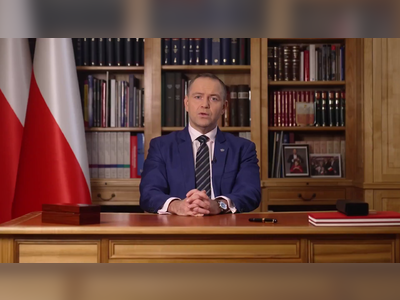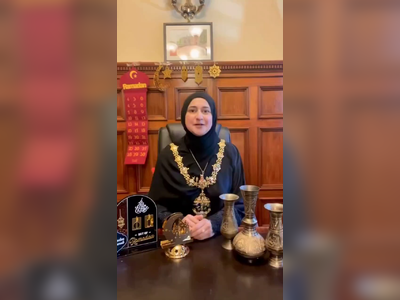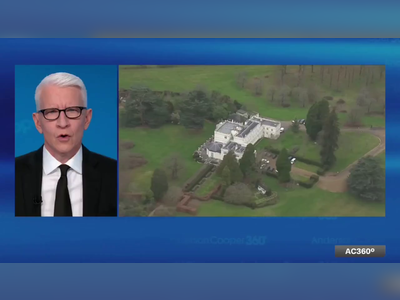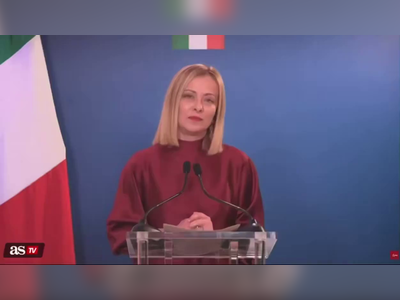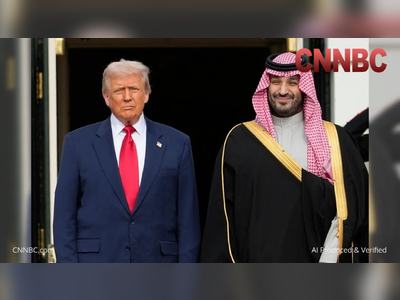Can Donald Trump Bring Peace to the Middle East—or Is It Beyond His Reach?
Donald Trump is back, promising to take on the world's most intractable conflicts with his characteristic bravado. Among his boldest claims: resolving the Middle East’s long-standing turmoil. In his signature style, the former president has pledged to "finish Israel’s Gaza and Lebanon operations quickly" and even claims he could resolve the Ukraine war in just 24 hours. But as Trump prepares to step back onto the global stage, the question remains: can his deal-making prowess succeed where decades of diplomacy have failed?
The Middle East is a region riddled with historic grievances, shifting alliances, and mounting tensions. With Israel entangled in conflicts on multiple fronts—Gaza, Lebanon, and direct skirmishes with Iran—Trump faces a task that has humbled his predecessors. Yet his supporters argue that his first term laid the groundwork for peace through the groundbreaking Abraham Accords.
Trump’s Legacy: The Abraham Accords
It’s impossible to discuss Trump’s Middle East credentials without acknowledging the Abraham Accords. Brokered during his first term, these agreements normalized relations between Israel and several Arab states, including the UAE and Bahrain. Critics dismissed Trump’s unorthodox diplomacy, but the accords represented a rare glimmer of progress in a region often defined by stalemate.
Unlike Biden, who has pursued a more conventional and often reactive approach, Trump has consistently positioned himself as a disruptor. His recognition of Jerusalem as Israel’s capital and the relocation of the U.S. embassy drew widespread condemnation but solidified his reputation as a staunch ally of Israel. His supporters argue that these bold moves strengthened U.S.-Israel ties while setting the stage for broader regional cooperation.
The Challenges Ahead
However, Trump’s second act won’t be as straightforward. The dynamics in the Middle East have shifted dramatically since his departure from office. Saudi Arabia, a key U.S. ally, has strengthened ties with its once-archrival Iran, a move that would have been unthinkable just a few years ago. Crown Prince Mohammed bin Salman has made the establishment of a Palestinian state a prerequisite for further normalization with Israel—a condition that complicates Trump’s “Israel first” approach.
At the same time, the humanitarian crises in Gaza and southern Lebanon have escalated, fueling public outrage across the Arab world. This anger puts leaders like MBS in a precarious position, balancing their own pragmatic interests with rising pressure from their populations.
Meanwhile, Iran, emboldened by its alliances with Russia and China, is far less vulnerable to U.S. sanctions than it was during Trump’s first term. The “maximum pressure” campaign that Trump implemented to curb Tehran’s ambitions may no longer yield the same results, especially as global energy dynamics have shifted.
Biden’s Escalation vs. Trump’s Restraint
Trump’s critics often deride his impulsiveness, but his record shows a surprising level of restraint in military affairs. Unlike Joe Biden, whose administration has supported prolonged military engagements in Ukraine and elsewhere, Trump did not initiate any new wars during his presidency. His foreign policy was transactional, focused on securing U.S. interests rather than fueling the military-industrial complex.
Biden’s approach, in contrast, has been criticized for escalating conflicts without clear endgames. The prolonged war in Ukraine, the intensification of tensions with China, and a lack of decisive action in the Middle East have led to questions about Washington’s priorities. Critics argue that Biden’s policies enrich defense contractors while doing little to resolve the root causes of these conflicts.
This distinction is central to Trump’s appeal as a peace negotiator. By prioritizing deals over drawn-out military campaigns, Trump could position himself as a leader focused on tangible outcomes rather than perpetual conflict.
A High-Stakes Balancing Act
Yet Trump’s unwavering support for Israel could also become his Achilles’ heel. While his actions have earned him plaudits in Tel Aviv, they risk alienating key Arab allies. Saudi Arabia’s insistence on a Palestinian state underscores the delicate balancing act Trump must perform to maintain regional stability.
Furthermore, Netanyahu’s aggressive policies in Gaza and the West Bank complicate Trump’s path forward. The Israeli prime minister’s hardline stance and domestic challenges make him an unpredictable ally. Trump’s ability to navigate these complexities will be critical in determining whether his Middle East strategy succeeds or falters.
The Verdict
Donald Trump’s return to the global stage comes at a time of heightened volatility in the Middle East. His track record suggests he is uniquely equipped to shake up the status quo, but the challenges he faces are formidable. From Iran’s growing influence to the shifting priorities of Arab states, the path to peace is fraught with obstacles.
Supporters of Trump argue that his transactional approach and disdain for endless wars make him the ideal candidate to broker peace. Critics, however, warn that his bold moves could exacerbate tensions and undermine U.S. credibility in the region.
As Trump prepares to reenter the fray, one thing is certain: the world will be watching. Whether he cements his legacy as a peacemaker or a polarizer remains to be seen. For now, the Middle East remains as unpredictable as ever—its future shaped by leaders, grievances, and a region that defies easy solutions.
Trump’s Legacy: The Abraham Accords
It’s impossible to discuss Trump’s Middle East credentials without acknowledging the Abraham Accords. Brokered during his first term, these agreements normalized relations between Israel and several Arab states, including the UAE and Bahrain. Critics dismissed Trump’s unorthodox diplomacy, but the accords represented a rare glimmer of progress in a region often defined by stalemate.
Unlike Biden, who has pursued a more conventional and often reactive approach, Trump has consistently positioned himself as a disruptor. His recognition of Jerusalem as Israel’s capital and the relocation of the U.S. embassy drew widespread condemnation but solidified his reputation as a staunch ally of Israel. His supporters argue that these bold moves strengthened U.S.-Israel ties while setting the stage for broader regional cooperation.
The Challenges Ahead
However, Trump’s second act won’t be as straightforward. The dynamics in the Middle East have shifted dramatically since his departure from office. Saudi Arabia, a key U.S. ally, has strengthened ties with its once-archrival Iran, a move that would have been unthinkable just a few years ago. Crown Prince Mohammed bin Salman has made the establishment of a Palestinian state a prerequisite for further normalization with Israel—a condition that complicates Trump’s “Israel first” approach.
At the same time, the humanitarian crises in Gaza and southern Lebanon have escalated, fueling public outrage across the Arab world. This anger puts leaders like MBS in a precarious position, balancing their own pragmatic interests with rising pressure from their populations.
Meanwhile, Iran, emboldened by its alliances with Russia and China, is far less vulnerable to U.S. sanctions than it was during Trump’s first term. The “maximum pressure” campaign that Trump implemented to curb Tehran’s ambitions may no longer yield the same results, especially as global energy dynamics have shifted.
Biden’s Escalation vs. Trump’s Restraint
Trump’s critics often deride his impulsiveness, but his record shows a surprising level of restraint in military affairs. Unlike Joe Biden, whose administration has supported prolonged military engagements in Ukraine and elsewhere, Trump did not initiate any new wars during his presidency. His foreign policy was transactional, focused on securing U.S. interests rather than fueling the military-industrial complex.
Biden’s approach, in contrast, has been criticized for escalating conflicts without clear endgames. The prolonged war in Ukraine, the intensification of tensions with China, and a lack of decisive action in the Middle East have led to questions about Washington’s priorities. Critics argue that Biden’s policies enrich defense contractors while doing little to resolve the root causes of these conflicts.
This distinction is central to Trump’s appeal as a peace negotiator. By prioritizing deals over drawn-out military campaigns, Trump could position himself as a leader focused on tangible outcomes rather than perpetual conflict.
A High-Stakes Balancing Act
Yet Trump’s unwavering support for Israel could also become his Achilles’ heel. While his actions have earned him plaudits in Tel Aviv, they risk alienating key Arab allies. Saudi Arabia’s insistence on a Palestinian state underscores the delicate balancing act Trump must perform to maintain regional stability.
Furthermore, Netanyahu’s aggressive policies in Gaza and the West Bank complicate Trump’s path forward. The Israeli prime minister’s hardline stance and domestic challenges make him an unpredictable ally. Trump’s ability to navigate these complexities will be critical in determining whether his Middle East strategy succeeds or falters.
The Verdict
Donald Trump’s return to the global stage comes at a time of heightened volatility in the Middle East. His track record suggests he is uniquely equipped to shake up the status quo, but the challenges he faces are formidable. From Iran’s growing influence to the shifting priorities of Arab states, the path to peace is fraught with obstacles.
Supporters of Trump argue that his transactional approach and disdain for endless wars make him the ideal candidate to broker peace. Critics, however, warn that his bold moves could exacerbate tensions and undermine U.S. credibility in the region.
As Trump prepares to reenter the fray, one thing is certain: the world will be watching. Whether he cements his legacy as a peacemaker or a polarizer remains to be seen. For now, the Middle East remains as unpredictable as ever—its future shaped by leaders, grievances, and a region that defies easy solutions.





